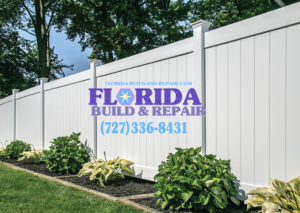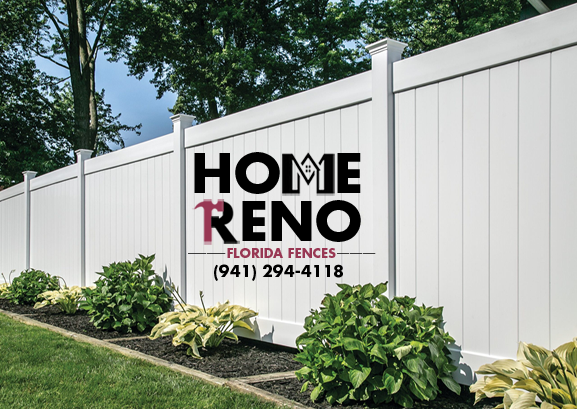Wood & Vinyl Privacy Fence Costs Dunedin
- Dunedin, Privacy Fence Costs Dunedin, Privacy Fence Installation Dunedin, Vinyl Privacy Fence Contractor Dunedin, Wood Privacy Fence Service Dunedin
- What are the benefits of choosing a vinyl privacy fence over wood in Dunedin
- Benefits of Vinyl Privacy Fences in Dunedin
- Are there any environmental benefits to choosing a Dunedin vinyl fence over a wood fence
The cost of a privacy fence in Dunedin typically ranges from $1,800 to $6,000, with an average cost of around $3,630. The price can vary significantly based on several factors:
Cost per Linear Foot
In Dunedin, you can expect to pay between $15 and $50 per linear foot for privacy fence installation, with the national average being around $26 per linear foot. Some specific estimates for Dunedin include:
- Wood fence installation: $15.80 per linear foot for a 4-foot fence
- Vinyl fence installation: $20.39 per linear foot for a 4-foot fence
- Aluminum fence installation: $25.49 per linear foot for a 4-foot fence
Factors Affecting Cost
- Fence Material: Different materials have varying costs. For example:
- Wood: Generally less expensive but requires more maintenance
- Vinyl: More expensive upfront but low-maintenance
- Aluminum: Durable and moderately priced
- Fence Size: Larger properties will require more fencing, increasing the overall cost. For instance:
- A 500 square foot backyard might cost around $1,750 for fencing
- A 2,000 square foot area could cost about $3,500
- Fence Height: Taller fences require more materials and labor, increasing the cost. Standard heights are 4, 5, or 6 feet, with taller fences costing 20-30% more.
- Labor Costs: Installation typically accounts for about 50% of the total project cost, with contractors charging around $50 per hour or $10 to $15 per linear foot.
- Location: Urban or coastal areas in Dunedin may have higher costs due to increased living expenses and labor rates.
When planning your privacy fence project in Dunedin, it’s advisable to get multiple quotes from local contractors to ensure you’re getting the best value for your specific needs and location.
What are the benefits of choosing a vinyl privacy fence over wood in Dunedin
Choosing a vinyl privacy fence over a wood fence offers several benefits:
Benefits of Vinyl Privacy Fences in Dunedin
- Durability and Longevity:
- Vinyl fences are more durable and long-lasting, typically lasting 20 to 30 years or more, compared to wood fences which last around 10 to 15 years with regular maintenance.
- They resist rotting, warping, and cracking due to weather conditions.
- Maintenance Requirements:
- Vinyl fences require minimal maintenance; they do not need staining or sealing like wood does.
- Cleaning is simple with water or mild soap.
- Resistance to Pests and Elements:
- Vinyl is resistant to insects, pests, and critters that can damage wood fences.
- It withstands harsh weather conditions without significant wear.
- Aesthetic Appeal:
- Vinyl fencing offers uniform color retention over time without fading or discoloring like wood can.
- It comes in various colors and designs for customization options that mimic the look of wood if desired.
- Cost-Effectiveness in the Long Run:
- Although vinyl may be more expensive initially than some types of wood fencing, its longevity reduces long-term costs associated with frequent repairs or replacements needed for wooden fences.
- Environmental Considerations:
While both materials have environmental impacts (vinyl from PVC production), vinyl’s durability means less material waste over time compared to frequently replaced wooden planks.
Overall, vinyl privacy fences provide Dunedin homeowners with a durable, low-maintenance option that enhances property value while reducing ongoing expenses related to upkeep and replacement.
Are there any environmental benefits to choosing a Dunedin vinyl fence over a wood fence
While both vinyl and wood fences have environmental impacts, vinyl fences offer some environmental benefits over wood fences:
- Longevity: Vinyl fences typically last 20 to 30 years or more, compared to wood fences which last around 10 to 15 years. This longer lifespan means fewer resources are used over time for replacements.
- Low maintenance: Vinyl fences require minimal maintenance, eliminating the need for harmful chemicals used in staining, sealing, or painting wood fences. This reduces the use of toxic substances that can leach into the environment.
- Recyclability: Although not biodegradable, vinyl fences are recyclable at the end of their life cycle. Old vinyl fences can be repurposed into other products, reducing waste.
- Reduced deforestation: Unlike wood fences, which require harvesting trees, vinyl fences don’t contribute to deforestation.
- Energy efficiency: The production process for vinyl fencing generally requires less energy than traditional wood fencing, contributing to a smaller carbon footprint.
- Non-toxic materials: Vinyl fences are made of non-toxic materials, preventing the release of harmful substances into the atmosphere.
However, it’s important to note that vinyl production does have environmental drawbacks, such as the use of non-renewable resources and the release of emissions during manufacturing4. The choice between vinyl and wood fencing ultimately depends on weighing these factors against personal priorities and local environmental considerations.

Dunedin Vinyl Privacy Fence Installation: Cost, Tips, and Benefits
Vinyl Privacy Fence Installation: Cost, Tips, and Benefits Cost of Vinyl Privacy Fence Installation The cost of installing a vinyl privacy fence in Dunedin varies

Dunedin Wood Privacy Fence Contractor Tips: How to Maintain Your Fence
Dunedin Wood Privacy Fence Contractor Tips: How to Maintain Your Fence Regular Inspection and Cleaning Protective Treatments Repairs and Maintenance Vegetation Management Long-term Care By

Vinyl Privacy Fence Contractor Dunedin
When searching for a vinyl privacy fence contractor in Dunedin, there are several key factors to consider: Experience and Expertise Look for a contractor with:

DIY Wood Privacy Fence Installation in Dunedin
Here are some key tips and tricks for installing a DIY wood privacy fence in Dunedin: Planning and Preparation Materials and Tools Installation Process Tips

Excellent Vinyl Privacy Fence Service Dunedin
If you’re looking for excellent vinyl privacy fence services in Dunedin, here are some key points to consider: Benefits of Vinyl Privacy Fences Important Dunedin

Wood Privacy Fence Contractor Dunedin
When hiring a contractor for a wood privacy fence in Dunedin, consider the following key factors: Experience and Expertise Look for contractors with extensive experience

Best Wood Privacy Fence Service Dunedin
When seeking a wood privacy fence installation service in Dunedin, there are several key factors to consider to ensure you get a high-quality installation that

Vinyl Privacy Fence Installation Dunedin
Here’s a guide to installing a vinyl privacy fence in Dunedin: What are the most common mistakes to avoid when installing a vinyl privacy fence

Wood & Vinyl Privacy Fence Costs Dunedin
The cost of a privacy fence in Dunedin typically ranges from $1,800 to $6,000, with an average cost of around $3,630. The price can vary

Best Vinyl Privacy Fence Contractor Dunedin
Finding the best vinyl privacy fence contractor in Dunedin involves considering several factors, including quality of materials, installation expertise, and customer service. Here are some

Wood vs. Vinyl Privacy Fence: Pros, Cons & Cost Comparison in Dunedin
When considering a privacy fence for your property in Dunedin, wood and vinyl are two popular options, each with its own set of advantages and


